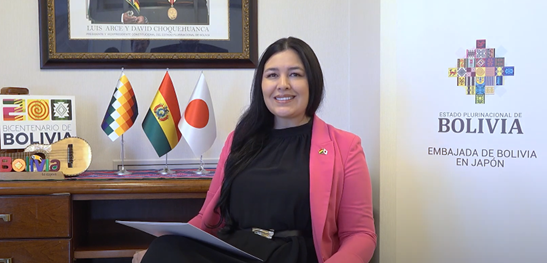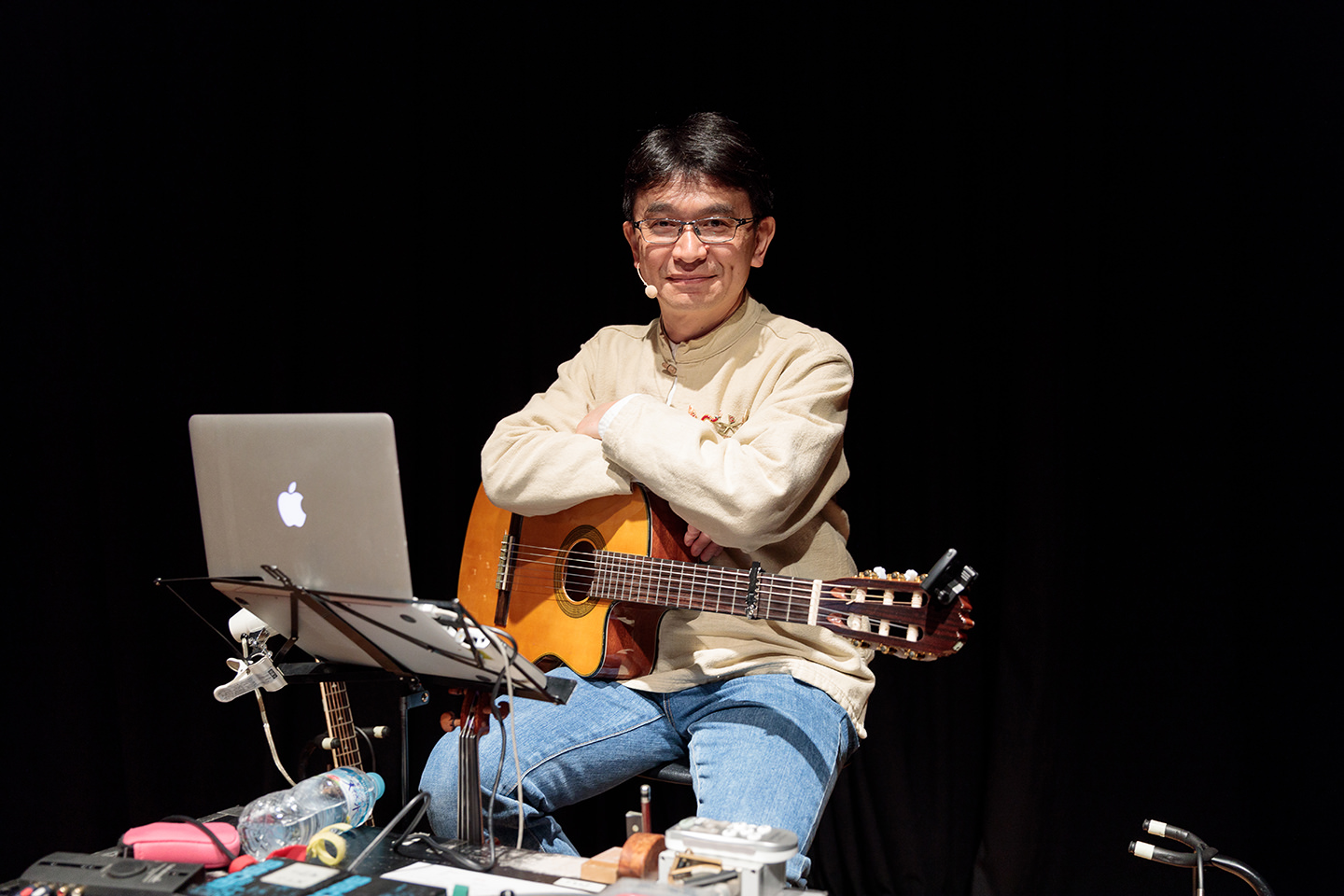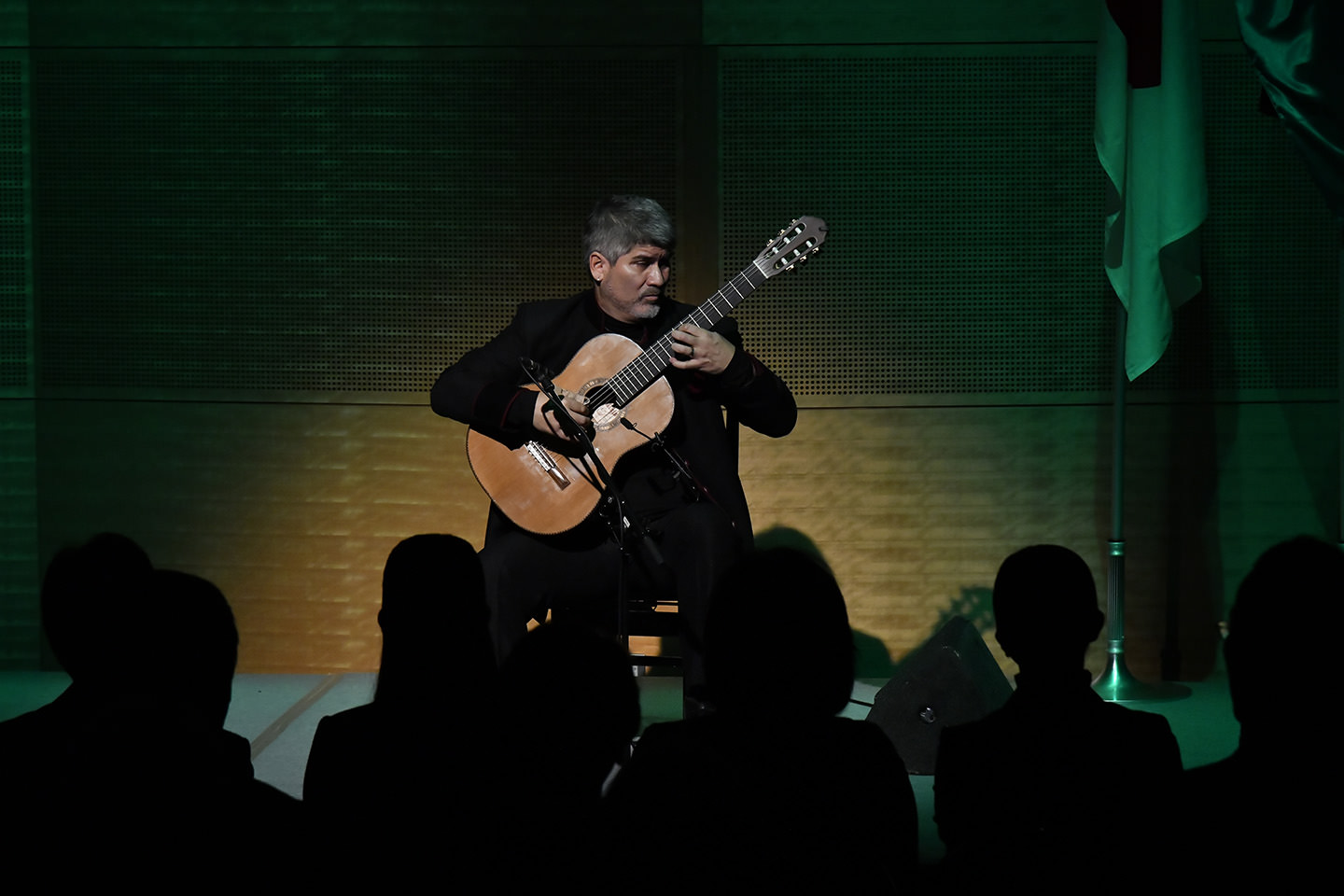Interview with Mrs. Natalia Salazar Balderrama, Chargé d’Affaires ad interim of the Embassy of the Plurinational State of Bolivia in Japan
Min-On:
Thank you very much for giving us this invaluable opportunity to interview you at your embassy today. Bolivia is home to a rich and vibrant musical culture, and we look forward to learn more about its wonders today. We had the pleasure of inviting the Bolivian folkloric group “Anata Bolivia,” led by Hiroyuki Akimoto, to tour throughout Japan six times. Their vibrant performances and captivating music have touched the hearts of audiences nationwide, drawing widespread acclaim. Could you share with us what folklore music means to the Bolivian people?

Mrs. Natalia Fernanda Salazar Balderrama:
Thank you, and welcome to the Bolivian Embassy.
Indeed, for us Bolivians, our music and folkloric instruments are our pride and an expression of our traditions. Music is an essential part of everyday life—it reverberates in every Bolivian home. I am truly delighted that our music is being shared and appreciated here in Japan.
As you mentioned, Anata Bolivia has performed many times in Japan, sharing the essence of Bolivian folklore with the Japanese people through their songs. They are not only promoting our culture here but also actively working to preserve our musical heritage back home in Bolivia.
It means a great deal to us that the Japanese audience enjoy Bolivian music and folklore. We are constantly striving to promote and disseminate our cultural identity—especially in this landmark year, as we celebrate the bicentennial of Bolivia’s independence. It is a pivotal moment to further honor and share our traditions and national pride, both in Japan and around the world.
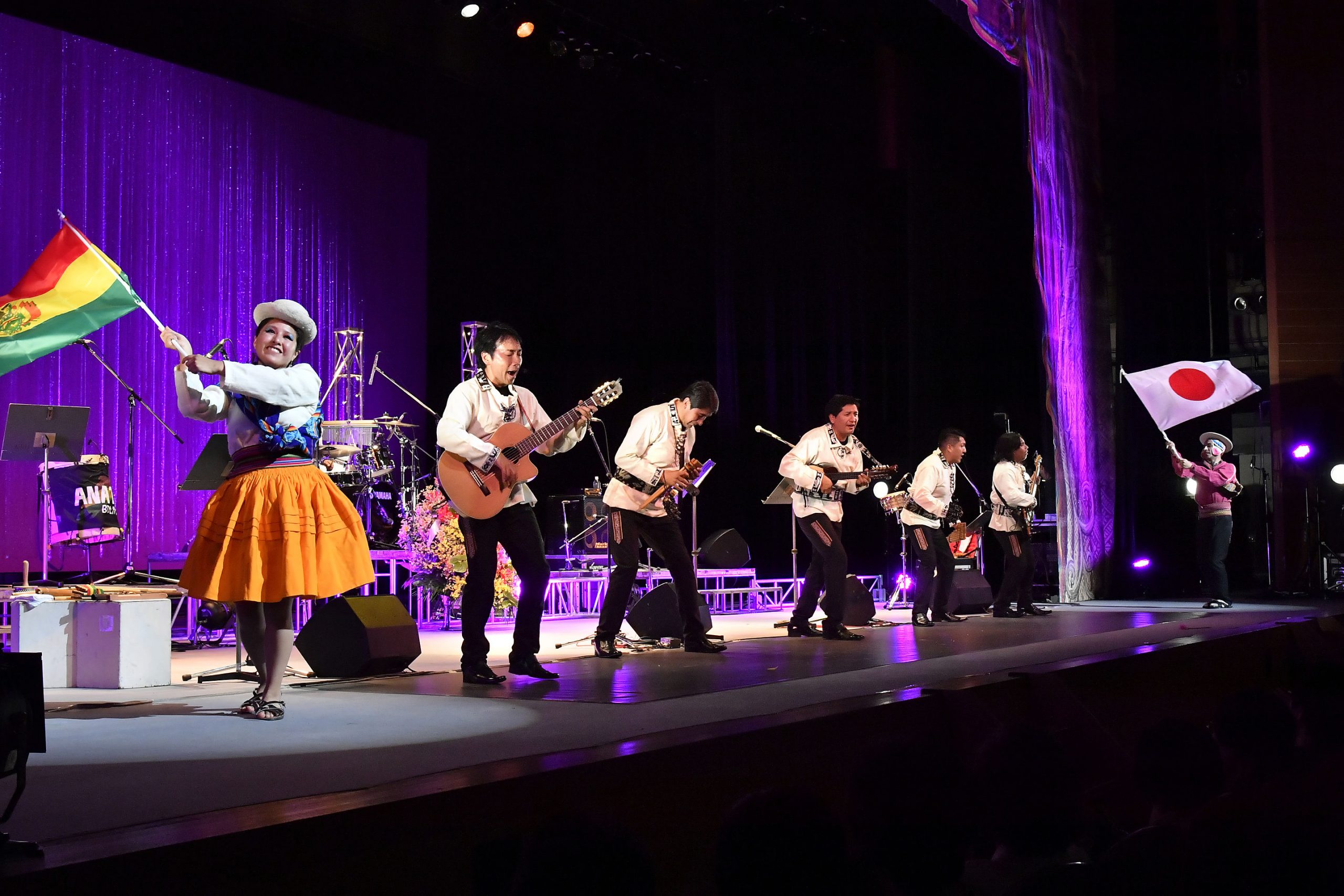
I haven’t had much time to learn how to play any of the numerous instruments we have, but have always loved the sound of the charango, which is a traditional Bolivian instrument and a national cultural heritage. I believe we have a responsibility to protect, promote, and share it—not only within Bolivia but globally. Therefore, it’s encouraging to see schools in Bolivia making efforts to ensure students learn to play traditional instruments and experience our folklore music.
We’ve also made opportunities to introduce such cultural education in Japan. Schools have organized many workshops here, focusing on instruments like the charango, zampoña, and quena. We’ve also collaborated with several prefectures to support these initiatives.
Min-On:
What makes Bolivian musical culture unique, and what kind of music is popular today?
Mrs. Natalia:
Bolivia’s musical culture is incredibly rich and diverse, encompassing many styles and traditions. Today, we’re seeing a new generation of musicians emerge—many exploring more contemporary styles. The music is evolving, and yet the traditional genres continue to thrive.
And of course, both our “morenada” and “diablada,” which are our traditional dance styles and cultural expressions that represent Bolivia’s rich culture and identity, and are deeply and eternally loved by the Bolivian people. The passion for this is not limited to the older generation but with children and youth all celebrating their cultural roots. Take the Oruro Carnival, for example—you’ll see entire families dancing together, from the young to the old, all celebrating our musical heritage.
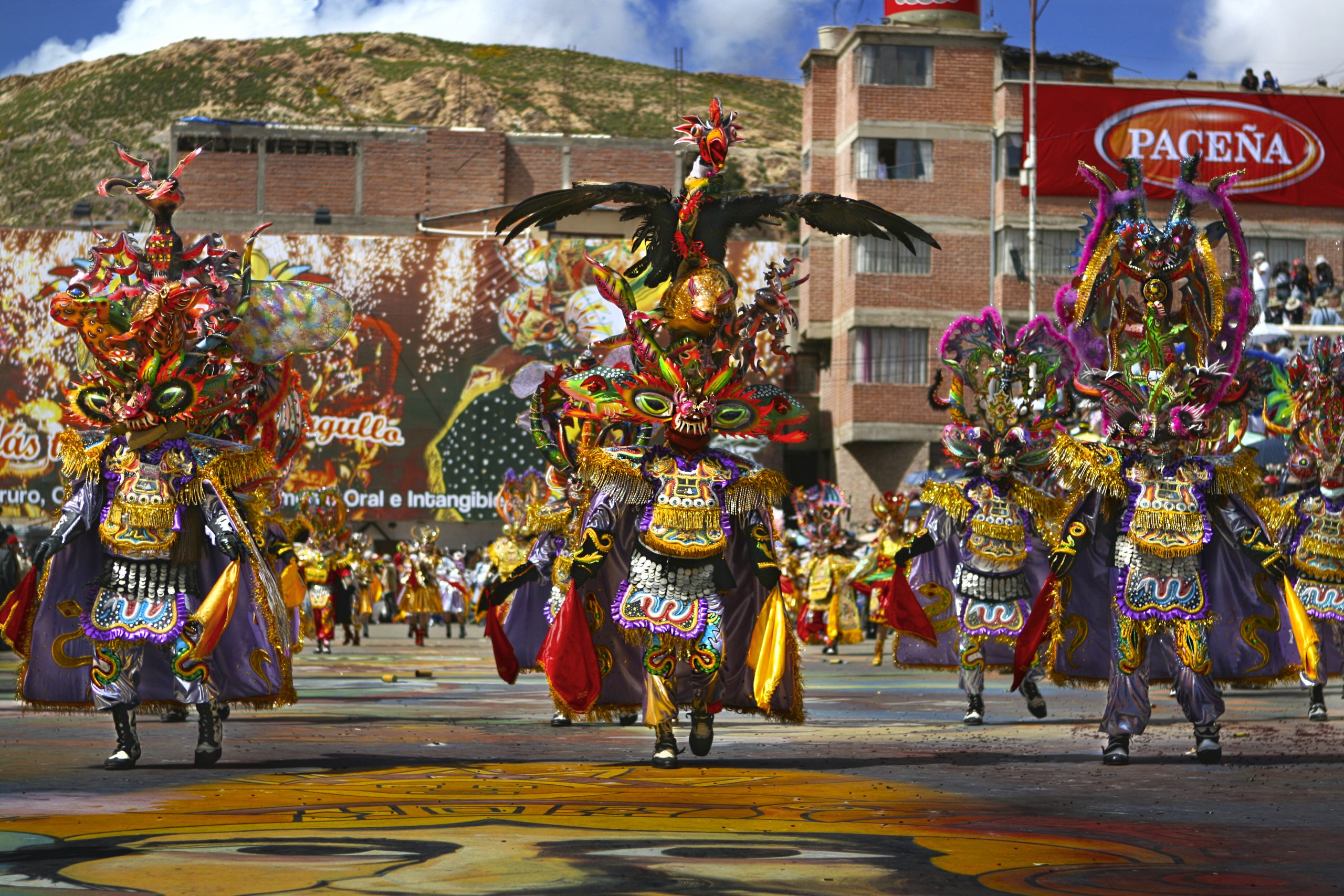
The Oruro Carnival
At the same time, though, I also feel it is important to support the creative evolution of our music, where traditional instruments are blended with modern sounds. Although there may be changes, the heart of Bolivian folklore remains strong, and we are proud to continue sharing it with the world.
Min-On:
Could you share your thoughts on the power of music and the importance of cultural exchange?
Mrs. Natalia:
Music has a unique power to connect people and is an important tool to communicate from heart to heart, oftentimes what words cannot do. The recent event in Okinawa was a perfect example—we witnessed a beautiful connection between two nations with different histories but similar traditions. Seeing Bolivian music being performed alongside traditional Japanese dance, especially by children and young people was truly touching. We must continue to foster these exchanges. Last year, Bolivia celebrated the 125th anniversary of Japanese immigration to our country. We held numerous commemorative events, all reinforcing the cultural bridges between our two nations. Music, folklore, and artistic expression help build these bridges, giving us the opportunity to share the richness of our respective cultures.
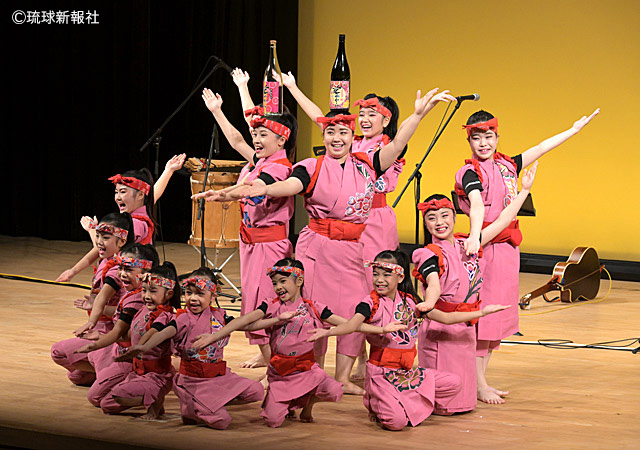
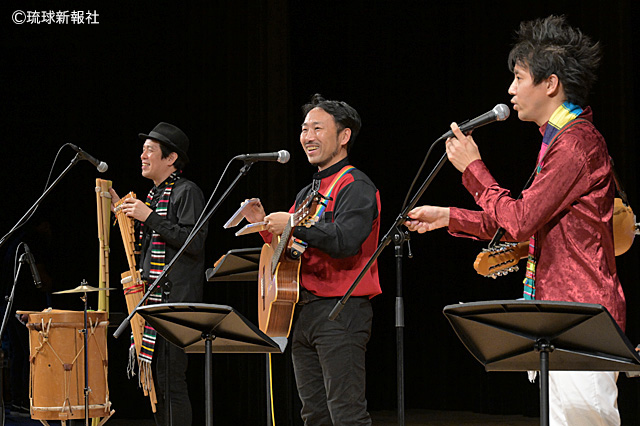
Min-On:
Finally, would you give our readers a message?
Mrs. Natalia:
Thank you once again for this wonderful opportunity. I sincerely hope the Japanese people will continue to enjoy and appreciate Bolivian folklore, music, and culture—not only here in Japan but also by visiting our country someday. Bolivia is waiting to welcome you with open arms. There is so much to discover—from our breathtaking landscapes to our delicious cuisine, and of course, our vibrant festivals such as the Oruro Carnival. We hope you’ll experience the joy of our music, our dance, and all that Bolivian culture has to offer. Thank you very much.
◆ Please enjoy the full interview
Watch the complete interview video here:
◆ Min-On Music Journey: Bolivia Edition

The Bolivia Edition of the Min-On Music Journey beautifully showcases the charm of Bolivian culture and music. We invite you to embark on this cultural journey through the following link:
https://www.min-on.org/13600/min-on-music-journey-no-59-bolivia/
◆ The Video of Cultural Lecture
The 30th Anniversary of the Sister City Agreement between Okinawa Prefecture and Santa Cruz, Bolivia: “Bonds with Okinawa”
If you have any comments regarding this article, please feel free to email us at publicrelations@min-on.or.jp
Min-On Concert Association
-Music Binds Our Hearts-


